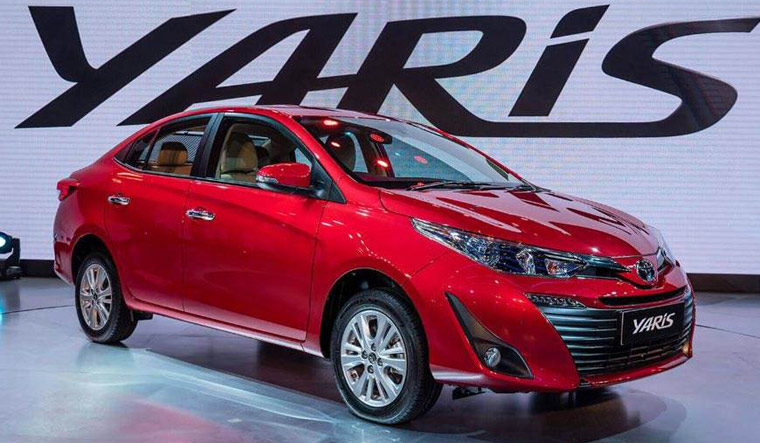The sharp depreciation of the rupee is giving car makers a head ache. A weakness in rupee makes parts imports expensive, hurting profits. To counter a sharp rupee fall, Toyota Kirloskar Motor will only speed up localisation across its product portfolio, a top company official said on Friday.
The rupee slipped past the 68-mark against the US dollars earlier this week, in the wake of rising crude oil prices. Prospects of faster interest rate hikes in the US and strong bond yields there have also put pressure on the rupee.
The depreciating rupee will hurt profits and there may come a time when the company can't absorb it any more, but there will not be a knee-jerk reaction on pricing, said Shekar Viswanathan, vice chairman of Toyota Kirloskar.
"We were looking at a exchange rate of close to 65 and we are already close to 68 and it could go up to 70. We are not looking at immediate price increase, but we have to watch, it's a dynamic situation. If there is a runaway depreciation of the rupee, it will only accelerate the process of indigenisation," he said.
Viswanathan, who was speaking on the sidelines of the launch of its much anticipated Yaris sedan, said the company has a long-term plan to localise.
Currently, among Toyota's product portfolio in India, the Etios has the highest localisation content at around 90 per cent. Yaris has around 87 per cent local content, which can go up to 90-92 per cent, added Viswanathan.
The Yaris will take on the highly successful Honda City in the sedan segment and Toyota has set ambitious targets of selling around 30,000-40,000 units of Yaris in the first year of launch.
also read
- Another SUV in town! What Mahindra aims with the launch of XUV 3XO
- Waiting for rains and pent-up demand post elections to save Indian auto!
- Electric dream spurs growth but why is India’s auto industry bracing for a challenge?
- Millions of recalled Hyundai and Kia vehicles with dangerous defect remain on US roads
It has already garnered two months of production worth of customer orders, since bookings opened a few months ago, say officials.
With crude prices rising, Viswanathan says there needs to be a drive towards more hybrid vehicles in India, (given they are more fuel efficient than their petrol or diesel engine counterparts), but it is not possible unless the government reduces the GST (goods and services tax) on such vehicles.
"We are looking for the government to rationalise the tax on hybrids, because the hybrids do merit a lower rate of tax," he said.
Under the GST regime, hybrid vehicles are attracting 43 per cent tax, versus 12 per cent tax for electric vehicles.
Toyota is also ready with its electric vehicle portfolio, but Viswanathan said there was a need for the battery charging infrastructure to be developed in the country, first, before it could sell electric vehicles here.
Overall, Toyota hopes to sell a total of around 1.57 lakh units in India in calendar year 2018, versus 1.40 lakh units sold last year, helped by the Yaris and continued strong demand for existing products like the Innova Crysta.


